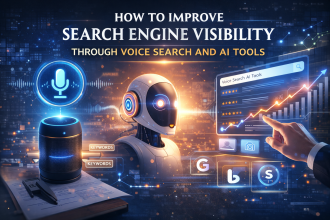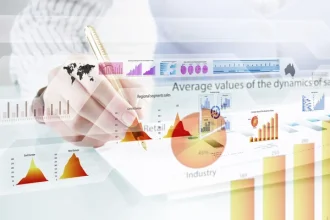It used to take a few taps to pay for something. Now it might not take anything at all. The distance between thought and execution is shrinking. AI isn’t just helping anymore. It’s acting. Payments, purchases, and even investment decisions are being carried out without direct input.

Photo by BoliviaInteligente on Unsplash.
The idea of having a digital assistant go beyond suggestions and take action is no longer a future concept. It’s already in the code. The shift didn’t happen all at once. It’s been stitched together quietly through tools, frameworks, and the slow handoff of trust. This time, speed wasn’t the only point. The bigger move was autonomy. Let’s see how below.
AI Picking Stocks, Coins, and Timing the Moves for You
People are no longer sitting in front of charts trying to decide when to buy or sell. They’re handing that off. Agentic systems are being wired to carry out investment logic across different asset classes, including stocks, commodities, and even cryptocurrencies that move fast and plug into DeFi layers. The appeal is speed and cost.
That’s where crypto expert Tony Frank’s top meme coins list draws attention. These coins don’t just have hype. They settle fast, with low gas fees and strong DeFi integration, traits that agents are programmed to prioritise. It’s less about guessing the market and more about letting the agent run the playbook.
Infrastructure Wasn’t the Problem — Initiative Was
Everything needed to make this work already existed, such as tokenised payment channels, layered permission systems, and programmable wallets. What was missing was intent. Now that intent is embedded into agents, those systems are finally being used the way they were designed to be, which is automatically.
An AI doesn’t need to confirm every step. It gets the parameters and moves. Check balances. Validate the vendor. Send the payment. If conditions change, the logic shifts. Humans set the rails. The agent rides them.
The Tools Are Already in Play
This isn’t theoretical anymore. Visa launched Intelligent Commerce. Mastercard dropped Agent Pay. Stripe, PayPal, and Coinbase rolled out upgrades that allow embedded triggers and AI-directed execution.
Startups moved fast as well. PayOS linked agents directly to reconciliation and retry cycles. These aren’t just smart payment routes. They’re agents handling failed transactions, adjusting timing, and optimising costs. They operate on the back-end, but their decisions affect the balance sheets. No beta. No demo. Just live use.
The Real Risk Is Misinterpretation
The issue isn’t fraud. It’s being too literal. Agents don’t guess. They follow logic exactly. That can be dangerous if the user’s intent wasn’t written clearly. That’s why developers are building override systems, like built-in circuit breakers, spending caps, and rule revision layers.
It’s not about control. It’s about correction. Most errors won’t come from hacking, but from bad logic. Tight logic wins. The rest gets patched or paused.
The Boring Stuff Is Where It Started
What got people to trust these systems wasn’t fancy investing tools. It was the quiet fixes, retrying payments, smoothing out vendor settlements, delaying fees, and reducing accidental charges. Small, invisible tasks that had a measurable impact.
That’s what built the bridge. Once users saw that agents could manage overlooked details, they started assigning more responsibility. With results instead of hype..
The Interface Is Disappearing on Purpose
These systems aren’t built to be interacted with. They’re built to vanish. You don’t need to log in. You don’t get push alerts. You just get the outcome: bills paid, charges sorted, and money moved. The best systems don’t interrupt. They act. You define your range. They stay within it. Nothing flashy. Nothing loud. That’s the point.
The Real Game Is Who Controls the Flow
It’s not about having the best AI. It’s about owning the framework that the AI runs through. Once users give their agent logic, including rules, conditions, and thresholds, it’s hard to move them. That logic holds history. That’s the moat.
That’s why the big players didn’t wait for perfection. They moved early to control the flow. Adoption now means ownership later. This is no longer about whether AI can be trusted to act. It’s about who you trust to build the tracks it runs on.
More Than Just Speed — It’s Persistence
Agentic systems aren’t fast just for the sake of being fast. They’re consistent. They don’t forget to pay. They don’t get distracted. They don’t log off. That alone creates a shift in what’s expected from financial tools. Always-on, always-resolving agents create a financial rhythm that isn’t interrupted by human habits or attention spans.
It’s not just about convenience. It’s about redefining what baseline efficiency looks like. That’s the shift regulators, platforms, and vendors are now trying to adapt to.
Everyone’s Moving — Even If They’re Not Talking
Behind the scenes, even the most conservative institutions are running trials, agentic audit systems, and AI-powered invoice tracking. Dynamic payment strategies are coded directly into enterprise stacks. Nobody wants to miss the transition point. Nobody wants to be caught waiting.
The headlines are flashy, but the substance is in the rewiring of basic tasks. Over the next few quarters, agentic AI won’t be pitched as a premium upgrade. It’ll be expected, like mobile banking once was, and like card-on-file before that.
Trust Isn’t a Feature — It’s a Build Process
In agentic systems, trust isn’t about marketing. It’s about consistency. Every task handled correctly builds credibility. Every silent fix reinforces reliance. That’s why adoption isn’t happening with one big campaign. It’s happening through quiet, repeated success.
That’s the real tell. The shift is here, not because it was announced, but because users stopped noticing.
A Shift Without Friction Is Still a Shift
People don’t need to understand how something works to feel its effect. The clearest evidence of agentic AI’s arrival is the lack of user resistance. When tools work quietly and correctly, they spread without permission. They become habits. The impact compounds silently. This isn’t automation for its own sake. It’s alignment, with action following intent, over and over, until the gap between idea and result disappears.

Founder Dinis Guarda
IntelligentHQ Your New Business Network.
IntelligentHQ is a Business network and an expert source for finance, capital markets and intelligence for thousands of global business professionals, startups, and companies.
We exist at the point of intersection between technology, social media, finance and innovation.
IntelligentHQ leverages innovation and scale of social digital technology, analytics, news, and distribution to create an unparalleled, full digital medium and social business networks spectrum.
IntelligentHQ is working hard, to become a trusted, and indispensable source of business news and analytics, within financial services and its associated supply chains and ecosystems










